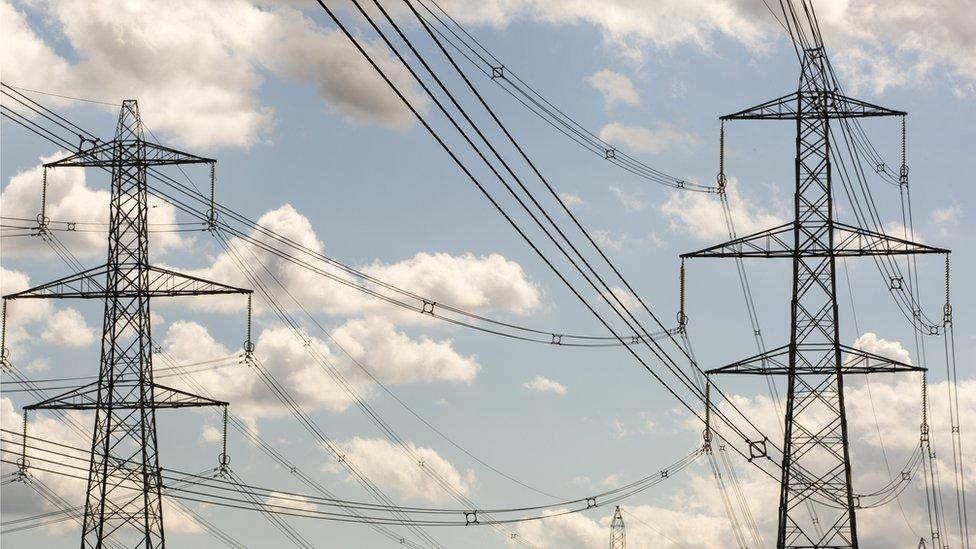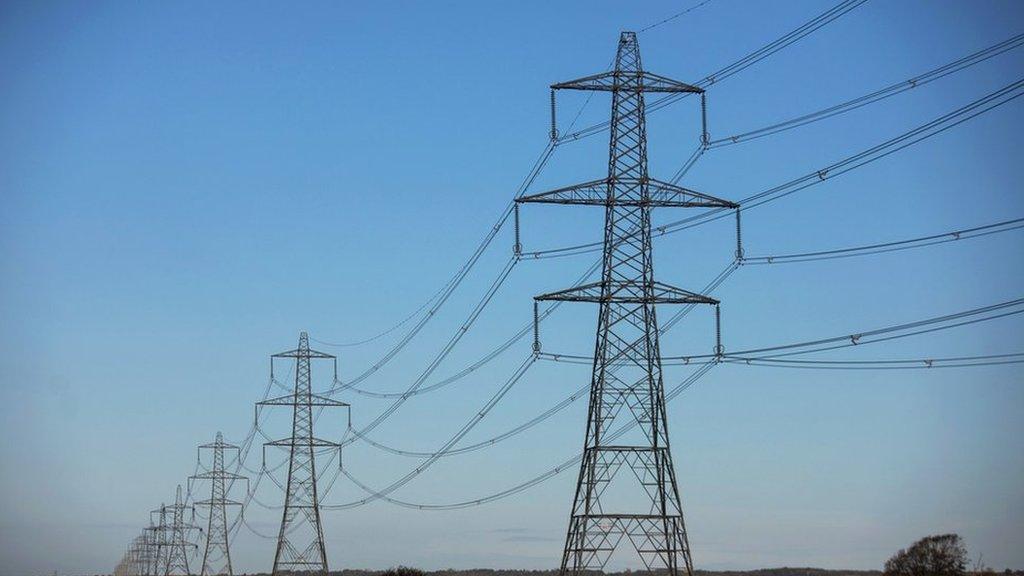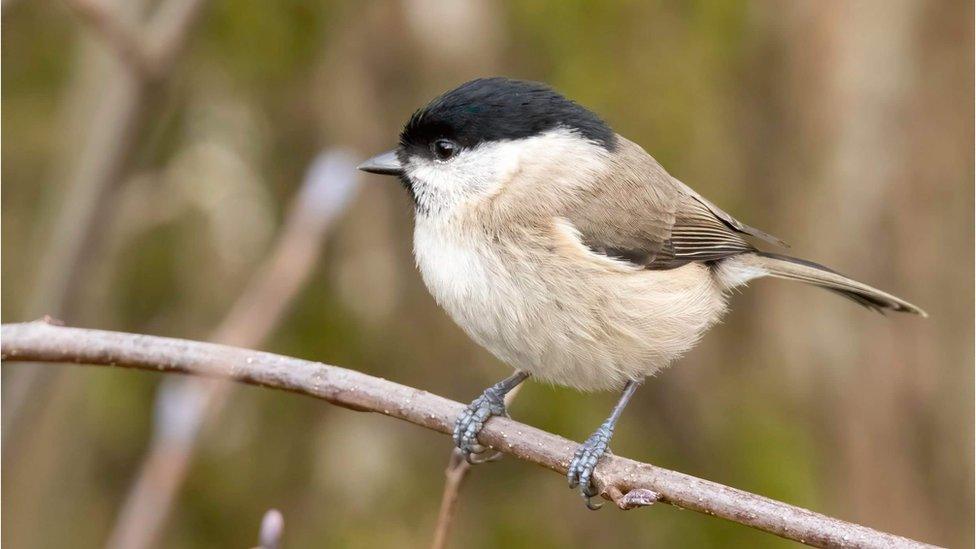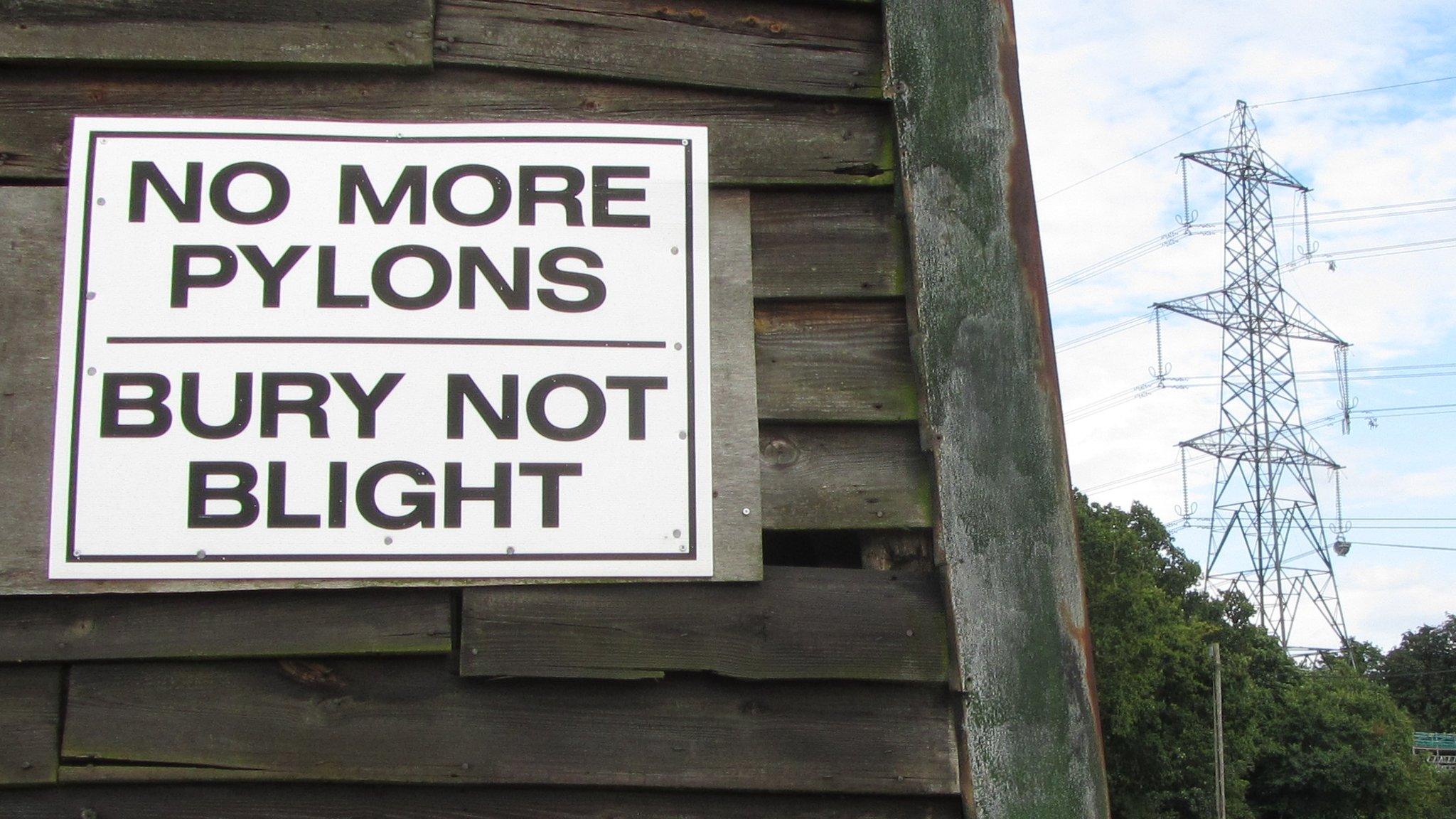East Anglia pylons: Campaigners write letter to King for support
- Published

The National Grid say this proposal will, reinforce the electricity grid to cope with rising electricity output
A group campaigning against a new pylon network has written to King Charles III for his support.
The route proposed by the National Grid would stretch 110 miles (160km) from Norwich to Tilbury in Essex, external.
Martin Snook, who drafted the letter, said the pylons were "a bad solution that will leave an awful legacy".
A National Grid spokesperson said: "The project is one of the essential network upgrades needed to deliver on the UK's net zero targets."
They said that, without it, "cleaner, greener energy generated offshore would not be able to be transported to homes and businesses across the country".
'Untold damage'
Mr Snook, a Colchester-based chartered engineer, said: "We decided to contact King Charles at this point because we believe that, as head of state, he should be aware of what is going on before it is too late to change course."
"It will cause untold damage to the environment and communities," he added.
Opponents to the proposal want planners to look at alternative routes under the sea off the Norfolk, Suffolk and Essex coast.
Rosie Pearson, from Essex Suffolk Norfolk Pylons founder, said they approached the King knowing how "committed" he was to environmental conservation.
"We are aware he doesn't intervene in political disputes but he may be able to help persuade the government to consider the offshore alternative we as a group have researched and costed," she said.
"Communities and the environment will suffer greatly from this plan."
The National Grid has agreed that one section of the route should go underground - in the Dedham Vale area of outstanding natural beauty on the Essex-Suffolk border.

Follow East of England news on Facebook, external, Instagram, external and Twitter, external. Got a story? Email eastofenglandnews@bbc.co.uk, external or WhatsApp us on 0800 169 1830
Related topics
- Published10 March 2023

- Published3 February 2023

- Published14 December 2022

- Published18 October 2022

- Published14 June 2022

- Published10 May 2022
